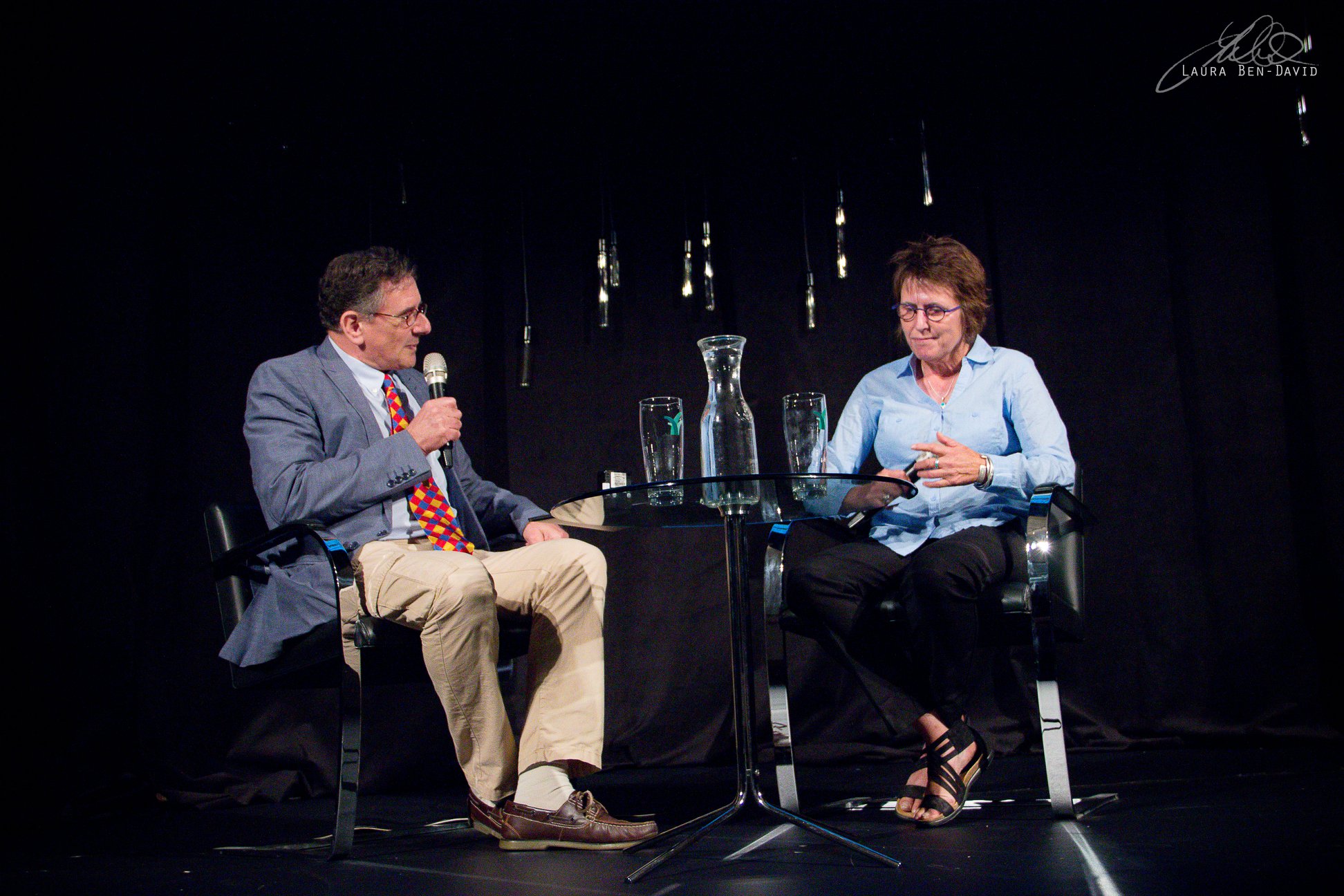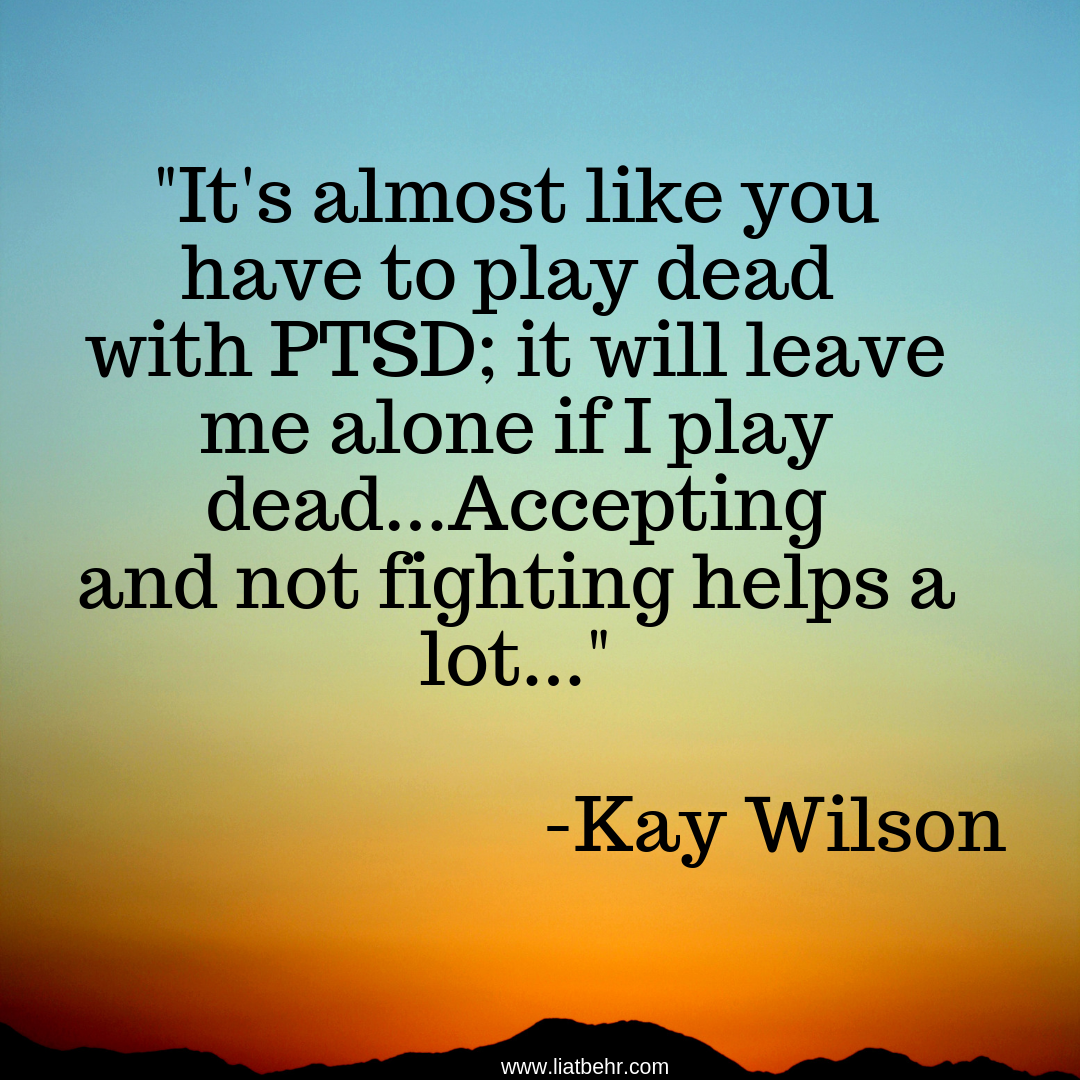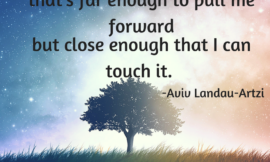Stabbed with a machete multiple times and left for dead, Kay Wilson has gone on to write a stunning memoir that may very well become the blueprint to be used by therapists and survivors coping with PTSD.
In 2010, Kay Wilson was guiding Kristine Luken on a guided tour in the heart of the Matta Forest, not far from Jerusalem. They were attacked by terrorists with machetes. Kay was stabbed thirteen times and played dead, as her friend Kristine was slaughtered. In her new book The Rage Less Traveled, Kay tells of her traumatic ordeal and of her enduring road to recovery.
The journey to mental health
Traumatic experiences rewire the brain and send victims in a downward spiral, often causing self-hatred and suicidal thoughts.
It is therefore unsurprising that five weeks after the attack, Kay Wilson was diagnosed with severe PTSD (post-traumatic stress disorder).
In Israel, sadly, war and terrorist attacks on soldiers and civilians are far more common than they should be. But as a result of their prevalence, Israel has systems in place, providing victims with therapy and support.
Five weeks after Kay Wilson was brutally stabbed, she began trauma therapy.
Humans are unable to process traumatic events. As a result, traumatized people feel that they must constantly and consistently avoid thinking about what happened to them. However, therapy proposes the exact opposite. In order to help make things better, the traumatic experience must be constantly and consistently confronted.
It is through this process that Kay has produced, The Rage Less Traveled. Through it, we are given a rare glimpse into what it means to have PTSD and what carers go through, caring for people who have PTSD.
The Rage Less Traveled didn’t begin as a book
The Rage Less Traveled began as trauma-therapy homework. Each day, Kay wrote down her experience, holding pen to paper, starting from the very beginning. Each day, day after day, week after week.
After she wrote her first account down, cool and clinical, it was time to go back. This time, Kay was asked to revisit each sentence, remembering the forest and what she heard. And after that account was complete, she was asked to revisit each sentence again, recording what she smelled. And then again, and again, until each of her accounts covered each of her five senses.
What this makes for is not only a compelling narrative and a great exercise for writers everywhere. It is precisely these daily writing exercises that helped Kay own her story and overcome her feelings of unlivable guilt and shame.
And though this writing was excruciating, it was also fundamental to Kay’s healing.
And so, over forty drafts later, Kay is a different person. She is more healed and more complete than the shattered person who began trauma therapy. Now, she is also an author.
Insights into PTSD
Kay still suffers from PTSD.
She explains:
“There are great days. There are also difficult days and very difficult days. But I think that managing it [PTSD] is coming to terms with it…instead of fighting it and being frustrated by it, it’s helpful to recognize that this is where your head is today, but that tomorrow or in two or three days, you’re going to feel better…It’s almost like you have to play dead with PTSD; it will leave me alone if I play dead…Accepting and not fighting helps a lot, because the more you fight it, the worse it becomes.”
I ask Kay for her advice to those caring for people with PTSD. She offers two insights:
1. Trauma victims feel stripped of everything. Don’t invalidate or devalue their experiences. Don’t take away their right to rage; it’s part of the healing process.
2. People who have suffered through trauma don’t need advice; they need friends. Don’t ask them what they need. Asking them, makes them feel helpless and needy. Besides, many times they don’t know what they want. Instead, just bring over things you think they might want, need or appreciate. Just be their friend.

Insights into “elitist suffering”
While it’s vital that nobody invalidate someone with PTSD, on the flipside, people suffering from PTSD should not fall into what Kay calls “elitist suffering.”
“We kind of build our self-esteem from what we suffered…that’s our label,” says Kay.
Instead, what has worked for Kay, is building her self-esteem on something else, and not allowing her experience to define who she is.
For Kay, living in Israel has helped. In her words:
“Living in Israel is the best therapy you can have. Because you’re confronted all the time with people who’ve been through far worse shit than you.”
She goes on to say, that PTSD is very isolating. It causes you to think only about yourself and your trauma.
“So I always say that my trauma is not worse, it’s not better, it’s simply different. And actually, having a cognizant awareness of the trials that other people go through, that’s also helped me take my eye off myself.”
The Rage Less Traveled
The Rage Less Traveled is Kay Wilson’s debut memoir about her journey through hate, violence and rage. You will laugh. You will cry. You will grow.
The Rage Less Traveled is available for purchase on Amazon as a paperback, Kindle and Audible book.
Thank you to Kay Wilson, for meeting with me twice – once before reading her book, and once after. I have been truly inspired by a woman who has felt true hatred, but who has chosen not to be defined by it. Instead Kay chooses to love humanity and make a difference in the lives of others.
You can follow Kay on Facebook or on her website – www.theragelesstraveled.com.

